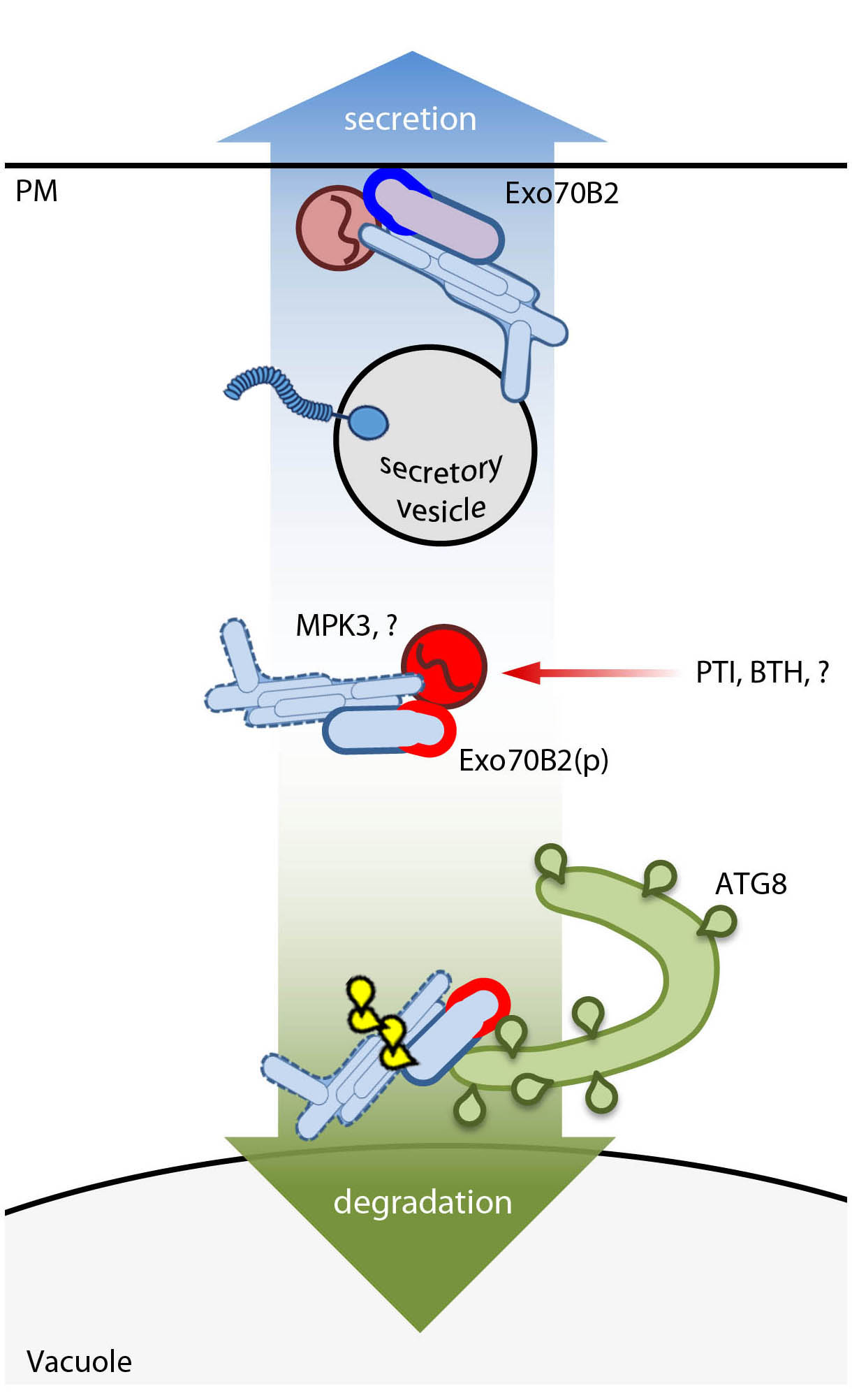Regulation of cellular processes
Ubiquitin signalling plays a key role in the regulation of cellular responses. Our aim is to uncover cellular processes and the components that are targeted by ubiquitination, with a focus on the immune response. Ubiquitin and ubiquitin-like protein modifiers play key roles in controlling signalling amplitude and intensity, as well as in buffering proteome imbalances caused by pathogen attack. An intertwined and complex signalling circuitry, regulates cellular dynamics and protein degradation to maintain homeostasis.

Controlling Secretion
Our studies have revealed that PUB ligases interact with components of the vesicle trafficking. These include subunits of the exocyst, an essential complex that mediates the tethering of post Golgi vesicles to the plasma membrane required for the secretion of immune receptors. During the immune response, subunits of the exocyst are phosphorylated and ubiquitinated inhibiting interaction with the plasma membrane, while inducing interaction with the autophagy machinery to reroute the exocyst to the vacuole and degraded. These mechanisms control receptor delivery acting as molecular brakes to the dampening of cellular responses and maintain homeostasis.
